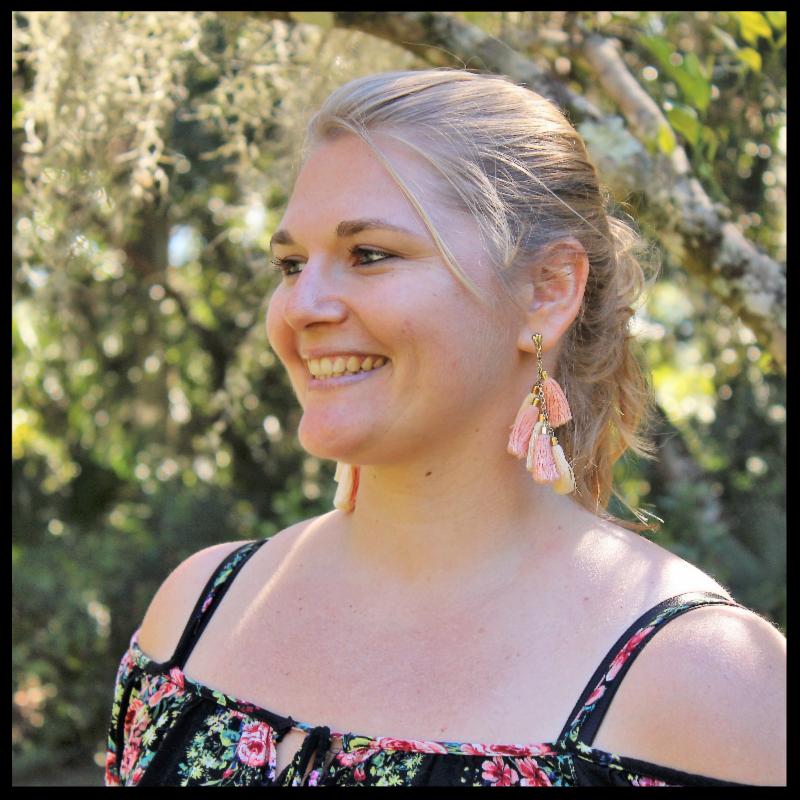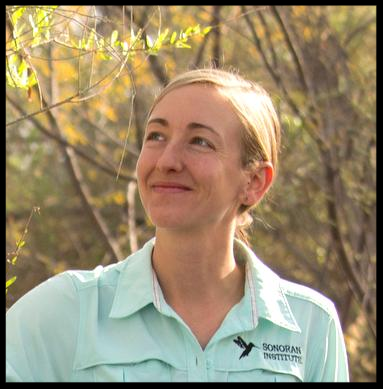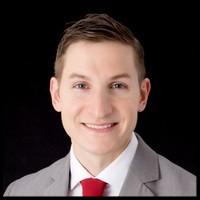|
|
|
|
 |
|
|
Director's Corner
Happy Holidays - Reach Out
We are at the halfway point in this eighteenth class of the NRLI program, and the Fellows have already traversed the state from Cedar Key to Naples (297 miles apart) and from Destin to Miami (645 miles apart) apart.
A group of strangers is now a cohort. Alumni out there know what I mean.
Florida is a BIG state and there is a lot to see and discuss. Our population
is set to hit 23 million by 2030, Every year we take a diverse group of rising leaders - each of whom knows their
own region and issues - and introduce them to the rest of Florida. We also introduce them to each other.
By the time they graduate, program Fellows have a new set of collaborative problem solving skills and a new network. They appreciate the state, its residents and its challenges in new and more inclusive ways. As I have written before, NRLI now has 317 alumni plus a current class of 23 Fellows. That sounds like a lot of trained people - and it is - but in a giant state like Florida we need more NRLI graduates in more places. Places like the organizations and businesses you work for and interact with. Places where, through decisions and actions, people have an impact on the lands and waterscapes Class XVIII is currently getting to know. Here are three simple ways you can help:
- Help us recruit: We are now recruiting for NRLI class XIX, which starts in August 2019. The schedule and application instructions can be found at http://nrli.ifas.ufl.edu/apply.shtml. We are excited about next year's venues and issues. Alumni (and supporters) are our best recruiting resource so tell people about the program, explain what you and your organization/business got out of it and point them to the website. Have them call us if they have questions and let them know about our scholarships. Help us recruit a class that represents our varied natural resource sectors, big and small, private and public, non-profit and for profit. Help us recruit a class that reflects our state's vast diversity - culturally, economically, ethnically and politically. We need your help and it is a great way to give back.
- Be a role model and pass it on: You have strong collaborative leadership skills. You may feel that those skills are rusty, but you have them. You know about things, people and places that others don't. Use your skills and teach others to use them. Model empathic listening and effective ways to deal with challenging communication styles. Frame disagreements as opportunities for joint problem-solving. Run, or help run, effective meetings. People will notice how you treat and communicate with those around you - we need more role models.
- End-of-year giving: NRLI scholarships are now available (go to our website and click on "apply") thanks to endowments established with the help of generous contributions from alumni and friends. We would love to offer additional scholarships, develop new activities for engaging alumni and find new ways to further our mission. Again, we need your help. As the end of the year approaches, please consider giving back and supporting the NRLI program.
Visit http://nrli.ifas.ufl.edu/endowments.shtml and make a donation.
- Bruce Delaney Scholarship - Targeted support to individuals from underrepresented communities or organizations
- General Joe Joyce Scholarship for Natural Resources Leadership - Non-targeted Scholarship
- Farm Credit of Florida Agricultural and Natural Resources Leadership Scholarship - Targeted support to young farmers (35 years old or younger)
- NRLI Engaged Citizen Scholarship - Targeted support to individuals from local government and non-governmental organizations
A final thought. I recently ran into classmates from NRLI class IV. We reminisced about our time together in 2004 and one remarked, "NRLI introduced me to places and issues that I didn't even know existed". I knew exactly what he meant. I still feel that way 14 years and over 100 sessions later. It was great to catch up with alums from my class and from other classes (see image below); all feel a NRLI connection. It is still early December, but allow me to suggest a New Year's resolution, one final way to give and receive this holiday season. Reach out and get in touch with Fellows from your NRLI class. Find out what they are up to and reminisce a bit.
~Jon Dain, NRLI Director
*
NRLI will soon be advertising for a new Program Coordinator. We are seeking someone with strong skills in
administrative and logistical support, training program management, and
communication, including partnership building and marketing. More to come.
|
|
|
|
|
|
|
Session 4
Sea Level Rise: Threats to & Solutions for Urban Areas
NRLI Class XVIII met in Miami, November 14-16 for session 4, which focused on sea level rise and highlighted threats to and solutions for urban areas.
Obey (also known as Jayantha Obeysekera, Director of the Sea Level Solutions Center at Florida International University - FIU), provided an overview of the science related to changing sea levels. He emphasized the importance of examining changes from the perspective of both short-term variability and long-term trends. He explained key drivers of sea level changes, associated impacts on the built environment, and potential societal responses. He noted how the "Swiss cheese" nature of Miami's unique geology presents a context in which structures such as levees become non-options for keeping water out of the city. Residents are all too familiar with "sunny day flooding" when water seeps up through the storm sewer system. His presentation prepared the group for the Thursday walking field tour of the city, led by Margarita Wells, Assistant Director of the City of Miami's Department of Environment and Sustainability. By the panel of stakeholders who joined the group the following day, Fellows were ready to deepen their understanding of the social implications of this challenge and to explore examples of successful stakeholder partnerships. Featured experts included:
- Zelalem Adefris, Climate Resilience Director, Catalyst Miami
- Captain Dan Kipnis, ardent fisheries conservationist and engaged citizen
- Hardeep Anand, Deputy Director, Department of Water and Sewer, Miami-Dade County
- Katherine Hangeman, Resilience Office, Miami-Dade County
- Mike Sukop, Hydrology Professor, Southeast Environmental Research Center, Florida International University
The Project Team would like to extend a huge thanks to FIU researchers, Jessica Bolson and Tiffany Troxler, for their help planning and organizing the session.
At session 4, the curriculum focus was an introduction to the concept of facilitation as well as demonstration of tools for building dialog among stakeholders, especially when issues are contentious and complex. Fellows learned about the utility of participatory timelines as well as blue-world, green-world scenario activities. Alumnus of Class XVII, Rebecca Elliott, joined the group on Thursday afternoon and participated in the timeline exercise, in which she shared her experiences of applying NRLI tools and concepts to her job with the Florida Department of Agriculture and Consumer Services, Office of Agricultural Water Policy
|
Each month, we ask a pair of Fellows to review the session in their own words. This article describes reflections from the point of view of Fellows Lourdes Mena & Wesley Seitz
|
Fellows' Article
By: Lourdes Mena & Wesley Seitz
It was a beautiful Wednesday in November and as we were driving to our venue, Miami Beach's Shelbourne Hotel, one of the first impressions we had was how busy and developed the area is. The hotel is next to the beach so before lunch some of us took a stroll down the historic beach and the beach walk. It was great seeing everyone again and we were ready to learn more about climate change.
Our guest speaker was Jayantha Obeysekera (Obey), director of the Sea Level Rise Solutions Center, Florida International University. He gave a great talk that provided the background to what we would be discussing over the next few days and after his talk a lot of us were surprised by how fast climate impacts are already being combated in Miami Beach. Sea level rise is an on-going threat in Miami Beach and for coastal communities throughout Florida. On Thursday morning, Margarita Wells gave us a walking tour of civil projects the City of Miami Beach is planning or has completed to minimize impacts of rising sea level on public and private properties. It was great to get out and walk. The tour emphasized the environmental projects that focus on protecting the natural ecosystems and on the infrastructure projects that combined with the natural ecosystems would help protect Miami Beach residents and create a more resilient community. On Thursday afternoon we learned a lot more from our stakeholder panel participants (Ms Zelalem Adefris, Captain Dan Kipnis, Hardeep Anand, Mike Sukop, and Katherine Hagemann). We heard about how the Southeast Florida Regional Climate Change Compact, a collaborative effort among Palm Beach, Broward, Miami-Dade and Monroe Counties, is working with its municipalities and experts around the world to develop sea level projections and resilience strategies they would use collaboratively. The expertise and goals of each representative and their organizations is an indication of the diversity of thinking needed for this complex issue.
It was certainly surprising to a lot of us that sea level rise impacts are already occurring at a larger scale than some of us realized. A better realization was that a lot of groups, municipalities and government entities are already working together to come up with solutions.
We had a good time learning about facilitation, planning for our practicums, and learning skills and techniques that we can use during meetings to encourage collaboration. It is always a blast to see how creative this NRLI class is. During our timeline exercise we watched our fellows enact TV News shows, Fresh Air on NPR, and even a "Class 28" NRLI stakeholder panel! We took some time to give thanks before leaving for a long break with a lot on our minds and new tools to explore and use in our work and personal lives.
|
|
Spotlight on Class XVIII Fellows
 Derrell Jones Derrell Jones
Captain
Florida Fish and Wildlife Conservation Commission
Captain Derrell Jones began his law enforcement career more than 16 years ago at the Department of Environmental Protection. He now serves the citizens of the State of Florida through his employment at the Fish and Wildlife Conservation Commission. Operating within the Office of Statewide Investigations his primary responsibilities include case review and oversight of Captive Wildlife and Environmental investigations. Captain Jones holds a bachelor's degree in criminal justice from Florida A&M University. More importantly he is married to his lovely wife, Savannah, and has a beautiful daughter named Kyndal.
Hannah Brown
PhD student & Communications Manager
School of Natural Resources and Environment
University of Florida
Hannah O. Brown is a journalist and social scientist. She is currently a PhD student in the
School of Natural Resources and Environment
at the University of Florida, where she works as the school's communications manager. She has a MAMC in journalism from the University of Florida and a BA in psychology from New College of Florida.
Hannah is currently the Nature Coast Scholar for the UF IFAS Nature Coast Biological Station, a fellowship that funds her research, which focuses on stakeholder collaboration in oyster restoration projects on the Gulf Coast.
Hannah is also a co-editor for The Marjorie, an online publication that focuses on environmental issues in Florida. She has a background in journalism, and has worked as a reporter for news outlets such as the Tampa Bay Times, Gainesville Sun and Lake City Reporter. Follow her on Twitter at
@hannah_o_brown
or email her at
hannahbo@gmail.com
.
 Karen Schlatter Karen Schlatter
Associate Director
Colorado River Delta Program, Sonoran Institute
Karen Schlatter is the Associate Director of Water and Ecosystem Restoration at the Sonoran Institute, a conservation non-profit organization based in Tucson, Arizona. Karen has worked for the Institute for over eight years and leads their ecological restoration and monitoring program in the Colorado River Delta in Mexico. She currently co-manages a multidisciplinary binational science team to evaluate impacts of environmental flow deliveries to the Colorado River in Mexico and leads a binational restoration team under the U.S.-Mexico water agreements Minute 319 and 323. While at Sonoran Institute, Karen and her team have restored over 700 acres of riparian and wetland habitat and helped to return water to the dry Colorado River in Mexico.
Karen and her husband, Joel Correia, an Assistant Professor at the University of Florida, moved to Gainesville in August. She has since been working remotely for Sonoran Institute, but hopes to shift her career to natural resource management in Florida, her new home. Karen is extremely excited to have the opportunity to participate in NRLI, as it provides the perfect introduction to pressing natural resource issues in Florida, as well as an introduction to the leaders of various organizations who are managing those issues.
Karen has a B.S. in Biology from McGill University and an M.S. in Environmental Studies from University of Colorado Boulder. Prior to working at Sonoran Institute, she was a Peace Corps volunteer in rural Paraguay and worked on agricultural projects. Karen is fluent in Spanish and Guaraní, and loves to run, play and listen to music, sing, and spend time with her husband, Joel. She and Joel have been enjoying exploring the beautiful natural areas around Gainesville.
 Benjamin Melnick Benjamin Melnick
Deputy Director
Division of Water Resource Management
Florida Department of Environmental Protection
Ben is currently in the Florida Department of Environmental Protection's Division of Water Resource Management, focusing on drinking water, industrial and domestic waste water, and stormwater. Having earned an undergraduate degree in Speech Communication from Millersville University of Pennsylvania, and a Law Degree with a certificate in Environmental Law from Florida State University's College of Law, Ben started with the Department in the Office of General Counsel, litigating circuit court cases.
|
Class XVIII Fellows
Katherine Allen,
County Extension Director; Extension Agent IV-Family, Youth, and Community Sciences, UF/IFAS Extension
Vanessa Bessey,
Environmental Administrator, Florida Department of Agriculture and Consumer Services, Office of Agricultural Water Policy
Rena Borkhataria,
Research Assistant Professor, Wildlife Ecology & Conservation, Everglades Research and Education Center, University of Florida/IFAS
Hannah Brown,
Communications Manager, PhD Student, School of Natural Resources and Environment, University of Florida
Amy Copeland, South Region Land Manager
, St. Johns River Water Management District
Yesenia Escribano,
Environmental Consultant, Florida Department of Agriculture and Consumer Services, Office of Agricultural Water Policy
Cyndi Fernandez,
Assistant Director, Conservation Florida
Ashleigh Fountain,
Biologist-Planning Technical Lead, Coastal Navigation Section, U.S. Army Corps of Engineers, Jacksonville District
Jay Garcia,
Wildlife Biologist, U.S. Forest Service
Derrell Jones,
Captain, Florida Fish and Wildlife Conservation Commission
Catherine Kennedy,
Senior Wildlife Assistance Biologist, Florida Fish and Wildlife Conservation Commission
William McKinstry,
Land Management Program Manager, Suwannee River Water Management District
Benjamin Melnick,
Deputy Director, Division of Water Resource Management, Florida Department of Environmental Protection
Lourdes Mena,
Fish and Wildlife Biologist, U.S. Fish and Wildlife Service
Ashley Pardee, Assistant, Wetland Preserve LLC
Chad Roberts,
Director of Marketing, Florida Farm Bureau Federation
Brian Scheick,
Assistant Research Scientist, Florida Fish and Wildlife Conservation Commission
Karen Schlatter,
Associate Director, Colorado River Delta Program, Sonoran Institute
Wesley Seitz,
Public Hunting Areas Biologist, Florida Fish and Wildlife Conservation Commission
Stacey Simmons,
Environmental Specialist III, Florida Department of Agriculture and Consumer Services, Office of Agricultural Water Policy
Jessica Sutt,
Wildlife Refuge Specialist, Southwest Florida Gulf Coast Refuge Complex, U.S. Fish and Wildlife Service
Lily Swanbrow Becker, Climate
Adaptation Coordinator, Florida Fish and Wildlife Conservation Commission
Erica Waller, Environmental Educator
Class XVIII Schedule
| Dates |
Topic |
Location |
| August 22-24, 2018 |
Coastal Erosion & Community Resilience |
Cedar Key |
| September 26-28, 2018 |
Endangered Species: The Future of the Florida Panther |
Immokalee |
| October 17-19, 2018 |
Fisheries Management: Red Snapper |
Destin |
| November 14-16, 2018 |
Sea Level Rise: Threats to & Solutions for Urban Areas |
Miami |
| January 23-25, 2019 |
Changing Dynamics in Agriculture & Rural Communities |
Clewiston |
| February 20-22, 2019 |
Water Quality: Springs & Agriculture |
Dowling Park |
| March 20-22, 2019 |
Wildlife Corridors |
Keystone Heights |
|
April 10-12, 2019
|
Graduation & Practicum Presentations |
Gainesville |
|
|
|
|